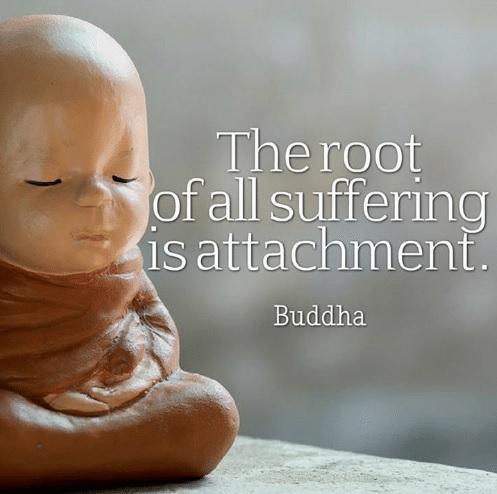Recently I went on Facebook to reach out to people I knew in the mental health field to help me with a question. The question was rather simplistic in nature. I was wondering what it was called when people “use” illness and was there a name for it. The responses were actually mind boggling. Some people defended their illness and took it personal, some people became angry because I reached out to the mental health field, some people become hurt for reasons a bit unclear still to me. Some people were wise and tried to help me by googling it and looking it up. True scholars indeed. It really provoked some interesting responses.
The paper I wanted to write soon became obsolete and I discovered that the hurt and anger towards me happened because I was looking at the picture wrong. It took people struggling with their suffering for me to see the answer. I acted quickly to remove the post as it seemed to really cause a stir and I did not want to end up on a Facebook hit list or un-friended again because I phrased something that someone did not like. Some people seemed upset that I reached out to the mental health community while others felt intimidated. After removing the post because of anger and hurt of others, and that was not my intent, and clearly the people who reacted did not know me as I am a kind person, I was left with the answer. The answer to my question came in a question;
Do we suffer because we suffer?
The first time I heard this was when my partner of 23 years had to be interviewed to go on disability. It was quite clear she could not work because of the damages due to a brain tumor but the psychologist, who obviously was practicing Buddhist psychology asked her, do you suffer because you suffer? She knew the answer instantly and immediately began to work on her suffering.
So why do we suffer? Buddhist psychology suggest that we are people who are trapped in the cycle of existence. This makes sense since Buddha said, “All I teach is suffering and the end of suffering.” With that said, it appears that much of our suffering is caused by fear and that alone can be a tough and sensitive topic because no one wants to admit they are attached to fear. Certainly I saw it on my post though. No one wants to hear that they suffering. Most people will insist they are not fearful however, where there is anxiety, doubt, self-hatred, low self-esteem, anger, hatred, illusions, there is fear.
Another great cause of suffering is cravings. We all crave for things. Let’s say we catch a cold. That happens, we get sick. The suffering comes when we become agitated we are sick, we say “I don’t want to be sick” and we slow healing down by craving for something else rather than what was given to us. This causes suffering. For some people, they crave being right because they fear being wrong. Western psychology may label this self-esteem issues, while Buddhist psychology calls it being attached to fear.
You see, rather than being okay with being wrong, or welcoming another opinion, people crave the desire of being right because they fear being wrong. The difficult thing about fear is it really has several extremes. The first one is we tend to sit and freeze like a deer in headlights. The other extreme is we panic. So between those two extremes, the question is, how do we stop suffering?
Basically, life is suffering and we create our suffering by thirsting or craving for what we cannot have. But are these really all the causes of suffering? Those who study Buddhism know that Buddha taught the practice that inquiry or seeking, leads to an inner experience of a sense of freedom and that emotions and behaviors such as love, compassion and kindness will naturally rise from this freedom. So for instance, if you have self-hatred and low self-esteem, it defines the quality of you love of self or the lack of love for yourself, which in turn creates suffering.
So do we suffer because we suffer? Clearly my Facebook posting says absolutely however, if anyone reads this who was on Facebook, they may argue with me and become attached to what they said. I personally would rather move on, thank them for the idea of this great blog, and move forward in my life with one less thing to be attached to. Part of moving away from our suffering is to look deeply and closely and be willing to find the changes as to how we can suffer less. Not suffering is a challenge even for Buddhist scholars however, it certainly is something many people try to attain.


Pain is inevitable. Suffering is optional. Attachment leads to suffering.
It is quite difficult to live a life free of attachments, expectations, and fear. But with a clear intention and judicious attention we can minimize such things in our lives and therefore experience more freedom. This is, undoubtedly the most challenging hurdle for humans.